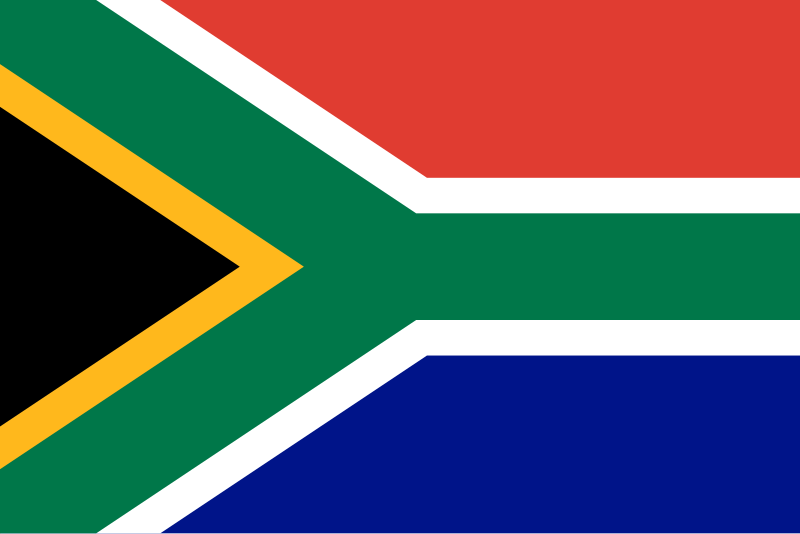
Navigating YouTube Monetization in France: Opportunities and Challenges
summary
YouTube Monetization in France refers to the process by which content creators on the platform generate revenue from their videos, primarily through the YouTube Partner Program (YPP). This program allows creators to earn income from advertisements, sponsorships, merchandise sales, and other monetization tools, provided they meet specific eligibility criteria, such as minimum subscriber counts and watch hours. In France, YouTube monetization operates within a complex legal and regulatory framework, shaped by both local laws and European Union directives, including the Copyright Directive (2019/790) and the Digital Services Act (DSA). These regulations aim to protect creators' rights, ensure fair compensation, and combat issues like copyright infringement and harmful content.
The Audiovisual and Digital Communication Regulatory Authority (ARCOM) plays a central role in overseeing YouTube's compliance with French laws, particularly in areas such as copyright enforcement and content moderation. Additionally, French creators must navigate tax obligations, including the "YouTube tax" and the digital services tax (DST), which impact their earnings and reporting requirements. Despite these challenges, YouTube remains a vital platform for French creators, offering opportunities to reach a global audience while adhering to strict content guidelines and advertiser-friendly policies.
Controversies surrounding YouTube monetization in France include debates over revenue stability, cultural and linguistic barriers, and the platform's handling of copyright disputes. However, the French YouTube ecosystem has seen significant success stories, with creators leveraging diverse revenue streams to build sustainable careers. As the platform continues to evolve, future trends such as stricter eligibility requirements, increased regulatory scrutiny, and the diversification of income sources are expected to shape the landscape of YouTube monetization in France.
Overview
YouTube monetization in France is a significant aspect of the platform's ecosystem, offering content creators opportunities to generate revenue while adhering to strict guidelines and policies. The YouTube Partner Program (YPP) is the primary avenue for monetization, enabling creators to earn income from ads served on their videos and access other monetization products[1]. However, YouTube has implemented stringent eligibility thresholds to ensure that only high-quality content creators are admitted to the program, thereby reducing the presence of spammers and impersonators[2].
In France, the regulatory environment also plays a role in shaping monetization practices. The Audiovisual and Digital Communication Regulatory Authority (ARCOM) has been actively involved in evaluating technical measures for identifying and protecting copyrighted materials on platforms like YouTube, Facebook, and Dailymotion[3]. This aligns with YouTube's broader commitment to copyright compliance, which is crucial for creators aiming to monetize their content without infringing on intellectual property rights[4].
YouTube's monetization policies have evolved over time, with the platform setting higher standards for eligibility and advertiser-friendly content. Creators must comply with the Advertiser-Friendly Content Guidelines, and videos that fail to meet these standards may have limited or no ads displayed[2]. Despite these challenges, YouTube remains a powerful platform for French creators, with over 2 billion logged-in monthly users globally, offering vast potential for audience engagement and revenue generation[5].
History of YouTube Monetization in France
YouTube monetization in France has evolved significantly over the years, shaped by both platform policies and French legislation. The YouTube Partner Program (YPP), which allows creators to monetize their content through ads, has been a key driver of this evolution[1]. As of October 2023, YouTube has an 87.1% penetration rate in France, making it one of the most widely used platforms in the country[6]. This high adoption rate has created a thriving environment for French creators to monetize their content and reach a global audience.
French law has also played a significant role in shaping YouTube monetization. The French Finance Act 2016 imposed obligations on online platforms, including YouTube, for users residing in France or those selling products or providing services in the country[7]. This legislation ensured that French creators and businesses operating on YouTube were subject to local regulations, including taxation and content monetization rules.
The implementation of the European Union's Copyright Directive further impacted YouTube monetization in France. Member States, including France, were required to transpose the directive into national law by 7 June 2021[8]. The directive reinforced the rights of authors and performers, enabling them to negotiate better remuneration for the exploitation of their works by online service providers like YouTube[8]. Additionally, Ordinance No. 2021-1518 of 24 November 2021 supplemented the transposition of the directive, further refining copyright and related rights in the digital single market[9]. These changes strengthened the position of French creators, allowing them to seek additional remuneration if their initial compensation was disproportionately low compared to the revenues generated from their work[8].
The French law of December 22nd, 2018, also contributed to the regulatory framework governing online platforms, including YouTube. This law aimed to combat online manipulation of information and fostered constructive cooperation between platforms like YouTube, Snap, Google, and Meta with French regulatory bodies such as Arcom[10]. These developments have not only enhanced the monetization opportunities for French creators but also ensured a more transparent and equitable environment for content distribution and revenue sharing.
Requirements for Monetization in France
To monetize a YouTube channel in France, creators must meet specific eligibility criteria set by the YouTube Partner Program (YPP). These requirements ensure that channels adhere to YouTube's policies and guidelines while maintaining a high standard of content quality.
Eligibility Criteria
Subscriber and Watch Time Thresholds
Creators must have at least 500 subscribers and either 3,000 valid public watch hours in the past 12 months or 3 million valid public Shorts views in the last 90 days to qualify for the YPP[11][12]. These thresholds were reduced in 2023 to make monetization more accessible to smaller channels[11]. Additionally, creators must upload at least three videos within 90 days to demonstrate active engagement with their audience[12].
Geographic and Legal Compliance
The YPP is available in France, but creators must comply with local laws, including the French Finance Act 2016, which imposes obligations on online platforms operating in France[7][13]. This includes adhering to tax regulations and ensuring that content does not violate copyright laws, as outlined in the Copyright Directive implemented by the European Union[8].
Content Guidelines
Channels must follow YouTube's Advertiser-Friendly Content Guidelines to ensure their videos are eligible for monetization. Videos that violate these guidelines may have limited or no ads served against them[2]. Additionally, creators must avoid uploading content that infringes on copyright laws, as France has stringent regulations to protect intellectual property[14][3].
Application Process
Once a channel meets the eligibility criteria, creators can apply for the YPP through YouTube Studio on a desktop or mobile device. After submitting the application, the status will show as "In progress" during the review process[15][16]. If approved, creators gain access to monetization tools, including ad revenue sharing and other YPP benefits[1].
Maintaining Monetization
To retain monetization privileges, creators must remain active on the platform. Channels that do not upload videos or post to the Community tab for six months or more may have their monetization turned off[15][16]. Additionally, creators must continue to comply with YouTube's policies and guidelines to avoid penalties or removal from the YPP[2].
By meeting these requirements, creators in France can successfully monetize their YouTube channels and earn revenue from their content.
Monetization Methods Available in France
YouTube offers a variety of monetization methods for creators in France, enabling them to generate income from their content. These methods include advertising revenue, sponsorships, merchandise sales, memberships, and crowdfunding, among others. Each method has its own requirements and benefits, allowing creators to diversify their revenue streams and reduce reliance on a single income source[8][17].
Sponsorships and Brand Collaborations
Sponsorships and brand collaborations are another lucrative monetization method for French creators. Brands often partner with creators to promote products or services through pre-roll ads, mid-roll ads, or dedicated sponsored videos. These partnerships not only provide steady revenue but also help creators build long-term relationships with brands. French creators, in particular, have been successful in leveraging sponsorships to supplement their ad revenue[18][19].
YouTube Partner Program (YPP)
The primary avenue for monetization on YouTube is through the YouTube Partner Program (YPP), which allows creators to earn revenue from ads served on their videos. To join the YPP, creators must meet specific eligibility thresholds, including a minimum number of subscribers and watch hours. Once admitted, creators receive 55% of the advertising revenue generated from their content, while YouTube retains 45%[1][20]. In France, creators must also comply with local regulations, such as those outlined in the French Finance Act 2016, which imposes obligations on online platforms operating in the country[7][21].
Ad Revenue and CPM Rates
Ad revenue is a significant income source for YouTube creators, with CPM (Cost Per Mille) playing a crucial role in determining earnings. CPM represents the amount advertisers pay for every 1,000 ad impressions on a video. In 2024, CPM rates in France and globally continue to fluctuate due to factors such as advertiser demand, audience location, and content type. Creators are encouraged to monitor their CPM rates through YouTube Analytics and optimize their content to attract higher-paying advertisers[22][23].
Merchandise and Memberships
Creators in France can also monetize their channels through merchandise sales and channel memberships. Merchandise allows creators to sell branded products directly to their audience, while memberships enable fans to support their favorite creators through monthly subscriptions in exchange for exclusive perks. These methods are particularly effective for creators with a dedicated and engaged fanbase[8][17].
Crowdfunding and Online Courses
Crowdfunding platforms and online courses are additional revenue streams available to French creators. Platforms like Patreon and Kickstarter allow creators to receive financial support from their audience, while online courses can be sold through webinars or automated sales funnels. These methods are especially useful for creators who produce educational or niche content[24].
Compliance with French Regulations
French creators must adhere to local regulations, including the Copyright Directive, which ensures fair remuneration for authors and performers. Implemented by 7 June 2021, the directive strengthens creators' rights and provides mechanisms for additional remuneration if initial payments are disproportionately low compared to the revenue generated from their work[8]. Additionally, creators are required to declare their YouTube income in France, following specific rules and processes for online income sources[25].
By leveraging these monetization methods and complying with local regulations, French creators can effectively generate income from their YouTube channels while building sustainable careers in content creation.
Legal and Regulatory Framework
YouTube monetization in France operates within a complex legal and regulatory framework that encompasses copyright law, taxation, and digital content regulation. The French legal system has undergone significant changes in recent years to adapt to the challenges posed by digital platforms and the protection of creators' rights.
Copyright Law and Enforcement
French copyright law, governed by the Code de la propri't' intellectuelle, provides robust protections for creators, including those on YouTube. The law grants creators exclusive rights to reproduce, distribute, and display their works, aligning with global copyright standards[26]. In 2021, France implemented Ordinance No. 2021-1518, which supplemented the transposition of the EU Copyright Directive (Directive 2019/790). This directive reinforces the rights of authors and performers, particularly in their contractual relationships with online service providers, and introduces a remuneration adjustment mechanism to ensure fair compensation when initial payments are disproportionately low[9][8]. However, the directive does not affect existing exceptions under French law, such as the right to quotation, criticism, parody, or pastiche[8].
YouTube's enforcement of copyright is a critical aspect of its operations in France. The platform employs tools like the Copyright Match Tool to help creators protect their content from unauthorized use[27]. Despite these measures, copyright enforcement remains a significant challenge, with creators often facing threats to their livelihoods due to the complexities of digital copyright law[28].
Regulatory Oversight
The Regulatory Authority for Audiovisual and Digital Communication (Autorit' de r'gulation de la communication audiovisuelle et num'rique; ARCOM) plays a central role in overseeing digital content in France. Established on 1 January 2022 through the merger of the High Audiovisual Council (CSA) and the High Authority for the Distribution of Works and Protection of Rights on the Internet (Hadopi), ARCOM is responsible for regulating both audiovisual and digital communications[29]. It enforces laws aimed at protecting minors, combating hateful content, and ensuring compliance with copyright regulations[29][30]. ARCOM also evaluates the technical measures implemented by platforms like YouTube to identify and protect copyrighted materials[3].
In preparation for the EU's Digital Services Act (DSA), ARCOM conducted an assessment of digital platforms' efforts to combat hateful content, highlighting the need for stricter regulations on platforms like YouTube[31].
Taxation of Digital Content
France has introduced specific tax measures targeting digital platforms and content creators. The "YouTube tax," formally known as the tax on the physical and online video broadcasting of audiovisual contents, was implemented in 2017. This tax applies to streaming services and video-sharing platforms, including YouTube and Netflix, and is governed by Article 1609 sexdecies B of the French Tax Code[32][33]. Additionally, France adopted a digital services tax (DST) in 2019, which imposes a levy on large multinational companies providing digital services to French users[34].
Content creators in France must navigate a complex tax landscape, reporting income from multiple sources and adhering to national and international tax regulations. Influencers and creators can benefit from specific tax regimes, such as the versement lib'ratoire, which offers reduced tax rates for those with lower incomes[35][36]. However, income from YouTube monetization must still be reported annually, with tax rates ranging from 20% to 30% depending on the income threshold[37].
Challenges and Controversies
YouTube monetization in France faces several challenges and controversies, ranging from regulatory scrutiny to issues of transparency and cultural preservation.
Regulatory and Legal Challenges
France has been at the forefront of implementing stringent regulations to combat online manipulation and hateful content. The French law of December 22, 2018, has significantly contributed to building institutional capacities, particularly within the Audiovisual and Digital Communication Regulatory Authority (Arcom), to address these issues[10]. Additionally, the European Union's Digital Services Act (DSA) has placed strict obligations on platforms like YouTube, requiring them to enhance their efforts in moderating harmful content. Arcom's evaluation of 13 digital platforms, including YouTube, highlighted the need for greater compliance with these regulations[31].
Copyright and Content Moderation
Copyright infringement remains a pressing concern for creators in France. A study revealed that YouTube's lack of transparency and involvement in addressing copyright issues has been a major point of contention among creators[38]. Furthermore, the platform's evolving policies, such as the recent lowering of eligibility requirements for the YouTube Partner Program (YPP), have sparked debates about the balance between accessibility for smaller creators and the potential for increased copyright disputes[39].
Cultural and Linguistic Barriers
France's strong emphasis on preserving its cultural identity has influenced the dynamics of YouTube monetization. French creators often face challenges in competing with English-speaking counterparts due to language and cultural barriers, despite their significant influence[40]. This cultural diversity, while enriching, also highlights the disparities in reach and monetization potential between French and global creators.
Revenue Stability and Market Fluctuations
Revenue stability is a critical concern for creators, as fluctuations in YouTube's Cost Per Mille (CPM) rates can significantly impact earnings. In 2024, CPM rates in France are subject to variability due to factors such as advertiser demand, audience demographics, and regulatory changes[22][23]. While France's creator economy is projected to grow substantially, reaching an estimated market size of USD 31,153.8 million by 2031, creators must navigate these uncertainties by diversifying their revenue streams[41].
Platform Policies and Creator Concerns
YouTube's policies, such as its handling of artistic nudity and AI-generated content, have also sparked controversies. For instance, Twitch's immediate rescission of its artistic nudity policy raised questions about content moderation standards across platforms[39]. Additionally, the discourse around AI-generated content, such as the potential for creating AI Drake fakes, underscores the ethical and legal challenges faced by creators and platforms alike[39].
Success Stories and Notable French YouTubers
The French YouTube scene has grown into a vibrant ecosystem, with creators producing content that reflects the country's rich culture, language, and lifestyle. Despite initial skepticism from traditional media, French YouTubers have carved out a significant niche, leveraging their creativity and audience loyalty to achieve remarkable success[42][43]. Many of these creators have turned their passion into profit, generating income through ad revenue, sponsorships, and merchandise sales[43][22].
One notable example is a French soccer enthusiast and content creator born on March 12, 1999, who has amassed a loyal following by sharing his passion for the sport. His success highlights the diverse range of content genres that thrive on the platform, from sports to lifestyle and beyond[43][40]. French YouTubers often face challenges in competing with English-speaking creators due to language barriers, but their cultural specificity and authenticity have allowed them to build strong, engaged audiences[40].
The YouTube Partner Program (YPP) has played a pivotal role in enabling French creators to monetize their content. By meeting eligibility thresholds and adhering to YouTube's Advertiser-Friendly Content Guidelines, creators like AericWinter and FabTheGap have gained access to ad revenue and other monetization tools[2][44]. Sponsorships have also become a lucrative avenue, with brands collaborating with French creators to reach their audiences through pre-rolls, midrolls, and dedicated ad videos[18][19].
The success of French YouTubers underscores the importance of diversifying revenue streams. Beyond ad revenue, many creators have explored merchandise sales, memberships, and crowdfunding to supplement their earnings and ensure financial stability[22][45]. This multifaceted approach has allowed them to navigate fluctuations in ad rates and maintain consistent revenue streams[46].
Future Trends and Developments
The landscape of YouTube monetization in France is poised for significant changes, driven by evolving legislation, platform policies, and market dynamics. One of the most notable developments is the implementation of Ordinance No. 2021-1518, which supplements the transposition of the EU Copyright Directive (2019/790). This directive, which France adopted in 2021, strengthens the rights of authors and performers, ensuring they receive fair remuneration for the exploitation of their works on platforms like YouTube[9][8]. The directive also introduces a remuneration adjustment mechanism, allowing creators to claim additional compensation if their initial payments are disproportionately low compared to the revenue generated from their content[8].
In addition to copyright reforms, France has been proactive in regulating digital platforms through initiatives like the Digital Services Act (DSA). The Audiovisual and Digital Communication Regulatory Authority (Arcom) has been actively evaluating platforms' compliance with hate speech and misinformation regulations, with YouTube being one of the key platforms under scrutiny[31]. These regulatory efforts are expected to further shape YouTube's monetization policies, particularly in terms of content moderation and advertiser-friendly guidelines[2].
YouTube itself has been tightening its monetization requirements to combat spam and low-quality content. The platform has introduced stricter eligibility thresholds for the YouTube Partner Program (YPP), ensuring that only creators producing high-quality, advertiser-friendly content can monetize their videos[2]. This trend is likely to continue, with YouTube focusing on maintaining a sustainable ecosystem for both creators and advertisers[47][2].
Another emerging trend is the diversification of revenue streams for creators. Beyond ad revenue, French YouTubers are increasingly exploring alternative monetization methods such as merchandise sales, memberships, and sponsored content[22]. This shift is partly driven by fluctuations in ad rates and the need for creators to build more resilient income models[22].
The collaboration between YouTube and traditional media, such as the recent partnership with M6, highlights the growing convergence of digital and traditional media in France. This alliance is expected to redefine content consumption patterns and create new monetization opportunities for creators[48].
Finally, the introduction of the "YouTube tax" in 2017, which imposes a levy on online video broadcasting services, continues to impact the platform's operations in France. While this tax primarily affects platforms, it underscores the French government's commitment to ensuring that digital services contribute fairly to the national economy[32].
Citations and Sources
In France, copyright infringement is a significant legal concern, with statutory definitions, secondary liability, remedies, and criminal enforcement being key considerations[14]. However, certain exceptions to copyright under French law, such as the right for quotation, criticism, review, caricature, parody, or pastiche, are preserved and do not apply to non-commercial online encyclopedias like Wikipedia[8]. The regulatory body, Arcom, plays a crucial role in ensuring the freedom of audiovisual communication and expression, adapting to technological, economic, and social changes. Its responsibilities include protecting communication freedom, safeguarding works, respecting individuals and the public, and regulating the technical and economic aspects of the sector[49]. These legal frameworks and regulatory actions directly impact platforms like YouTube, influencing their monetization strategies and compliance requirements in France.


